Fleurs du Mal Magazine


Or see the index
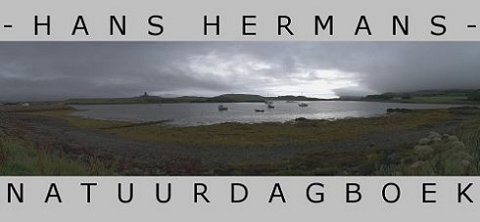
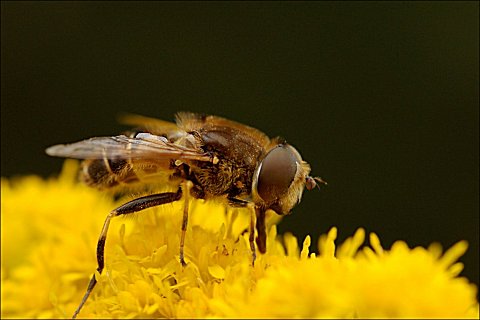
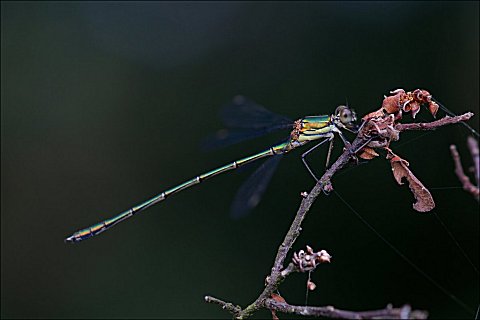
May-Flower
Pink, small, and punctual,
Aromatic, low,
Covert in April,
Candid in May,
Dear to the moss,
Known by the knoll,
Next to the robin
In every human soul.
Bold little beauty,
Bedecked with thee,
Nature forswears
Antiquity.
Emily Dickinson
(1830-1886)
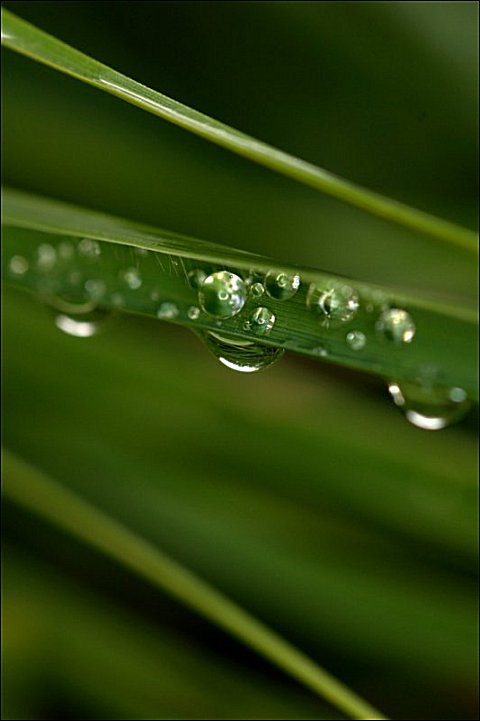

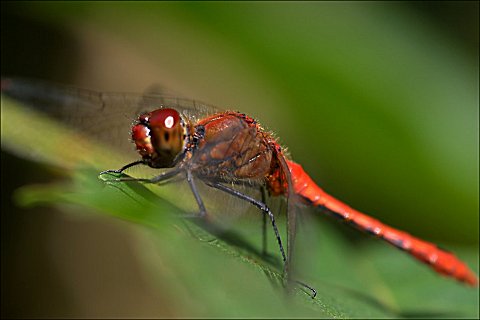
Hans Hermans Natuurdagboek
Poem: Emily Dickinson
Photos: Hans Hermans
June 2011
kempis.nl poetry magazine
More in: Archive C-D, Dickinson, Emily, Hans Hermans Photos
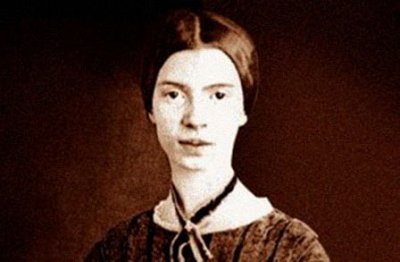
Emily Dickinson
(1830-1886)
Transplanted
As if some little Arctic flower,
Upon the polar hem,
Went wandering down the latitudes,
Until it puzzled came
To continents of summer,
To firmaments of sun,
To strange, bright crowds of flowers,
And birds of foreign tongue!
I say, as if this little flower
To Eden wandered in —
What then? Why, nothing, only,
Your inference therefrom!

Emily Dickinson poetry
kempis.nl poetry magazine
More in: Dickinson, Emily
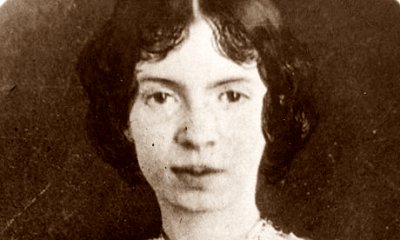
Emily Dickinson
(1830-1886)
To Fight Aloud Is Very Brave
To fight aloud is very brave,
But gallanter, I know,
Who charge within the bosom,
The cavalry of woe.
Who win, and nations do not see,
Who fall, and none observe,
Whose dying eyes no country
Regards with patriot love.
We trust, in plumed procession,
For such the angels go,
Rank after rank, with even feet
And uniforms of snow.

Emily Dickinson poetry
kempis.nl poetry magazine
More in: Dickinson, Emily
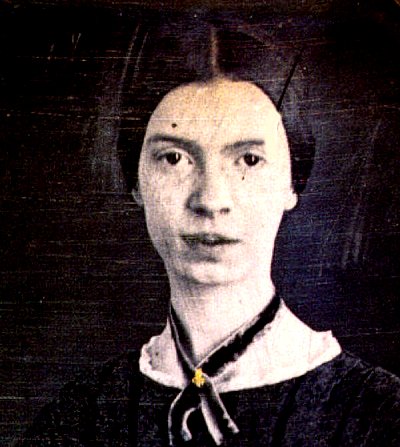
Emily Dickinson
(1830-1886)
So Bashful When I Spied Her
So bashful when I spied her,
So pretty, so ashamed!
So hidden in her leaflets,
Lest anybody find;
So breathless till I passed her,
So helpless when I turned
And bore her, struggling, blushing,
Her simple haunts beyond!
For whom I robbed the dingle,
For whom betrayed the dell,
Many will doubtless ask me,
But I shall never tell!

Emily Dickinson poetry
kempis.nl poetry magazine
More in: Dickinson, Emily
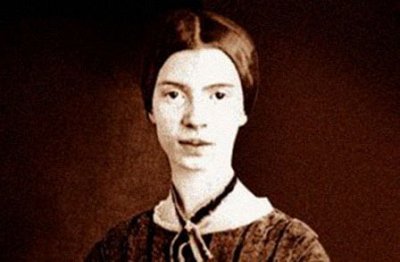
Emily Dickinson
(1830-1886)
The First Lesson
Not in this world to see his face
Sounds long, until I read the place
Where this is said to be
But just the primer to a life
Unopened, rare, upon the shelf,
Clasped yet to him and me.
And yet, my primer suits me so
I would not choose a book to know
Than that, be sweeter wise;
Might some one else so learned be,
And leave me just my A B C,
Himself could have the skies.

Emily Dickinson poetry
kempis.nl poetry magazine
More in: Dickinson, Emily
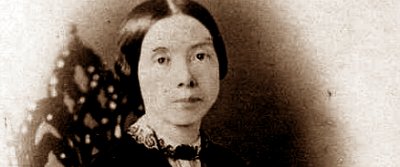
Emily Dickinson
Verzamelde gedichten
Een statig huis met parkachtige tuin in het nog landelijke Amherst (Massachusetts, VS) vormde de ambiance waarin tussen 1855 en 1885 een van de opmerkelijkste dichterlijke oeuvres is ontstaan die er zijn. Emily Dickinson (1830–1886) schreef bijna 1800 gedichten en publiceerde er maar enkele. De volstrekt eigenzinnige inhoud van het werk, en daarbij haar teruggetrokken bestaan en onwil te publiceren, hebben na de verschijning van het verzameld werk geleid tot een stortvloed van biografische studies en interpretaties. Deze tweetalige uitgave van de grootste verzameling van Dickinsons gedichten in vertaling die ooit in Nederland verscheen, gaat vergezeld van een uitgebreid en kundig commentaar en een biografi sche schets door vertaler Peter Verstegen.
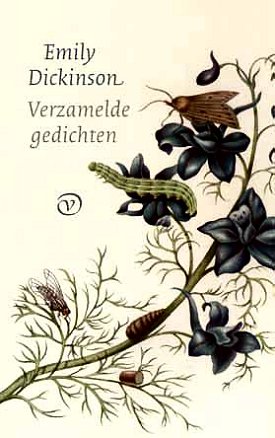
Deze nieuwe uitgave van Dickinsons Verzamelde gedichten bevat de Nederlandse vertaling van ruim de helft van haar poezie. Van de gedichten die ze in haar beste jaren schreef en in zelfgemaakte handschriftbundels bijeenbracht (1860-1864), is circa tweederde vertaald. Uit de eerdere uitgaven, Gedichten I (2005) en Gedichten 2 (2007), zijn alle vertalingen herzien en aangevuld met nieuw werk. Derhalve bevat dit boek veel nieuwe, niet eerder vertaalde gedichten. Het gaat nu, voor zover dit van vertalingen kan worden gezegd, om de definitieve tekst. De gebrekkige chronologie van de eerdere delen is in dit boek hersteld, zodat Dickinsons dichterlijke ontwikkeling te volgen is.
‘Er is mij geen poezie bekend, die zo weinig lijkt, en zoveel is.’ schreef Simon Vestdijk
Het moet Emily Dickinsons thematiek zijn die tijdloos is: ze schrijft zoals geen ander ooit heeft gedaan over pijn, hartstocht, (on)geloof, de dood, de natuur, verlangen, heel het palet van het menselijk tekort. Haar liefdesgedichten zijn de schrijnendste die ooit geschreven werden. De Verzamelde Gedichten van Dickinson zijn nu verschenen bij Van Oorschot.
Emily Dickinso: Verzamelde gedichten
Uitgeverij Van Oorschot Amsterdam
ISBN 9789028241718
Poezie, 960 pagina’s
€ 29,90
fleursdumal.nl magazine
More in: Dickinson, Emily
.jpg)
Emily Dickinson
(1830-1886)
In Vain
I cannot live with you,
It would be life,
And life is over there
Behind the shelf
The sexton keeps the key to,
Putting up
Our life, his porcelain,
Like a cup
Discarded of the housewife,
Quaint or broken;
A newer Sevres pleases,
Old ones crack.
I could not die with you,
For one must wait
To shut the other’s gaze down, —
You could not.
And I, could I stand by
And see you freeze,
Without my right of frost,
Death’s privilege?
Nor could I rise with you,
Because your face
Would put out Jesus’,
That new grace
Glow plain and foreign
On my homesick eye,
Except that you, than he
Shone closer by.
They’d judge us — how?
For you served Heaven, you know,
Or sought to;
I could not,
Because you saturated sight,
And I had no more eyes
For sordid excellence
As Paradise.
And were you lost, I would be,
Though my name
Rang loudest
On the heavenly fame.
And were you saved,
And I condemned to be
Where you were not,
That self were hell to me.
So we must keep apart,
You there, I here,
With just the door ajar
That oceans are,
And prayer,
And that pale sustenance,
Despair!
.jpg)
Emily Dickinson poetry
k e m p i s . n l p o e t r y m a g a z i n e
More in: Dickinson, Emily
.jpg)
E m i l y D i c k i n s o n
(1830-1886)
If you were coming in the fall
If you were coming in the fall,
I’d brush the summer by
With half a smile and half a spurn,
As housewives do a fly.
If I could see you in a year,
I’d wind the months in balls,
And put them each in separate drawers,
Until their time befalls.
If only centuries delayed,
I’d count them on my hand,
Subtracting till my fingers dropped
Into Van Diemen’s land.
If certain, when this life was out,
That yours and mine should be,
I’d toss it yonder like a rind,
And taste eternity.
But now, all ignorant of the length
Of time’s uncertain wing,
It goads me, like the goblin bee,
That will not state its sting.
.jpg)
Emily Dickinson poetry
k e m p i s p o e t r y m a g a z i n e
More in: Dickinson, Emily
.jpg)
E m i l y D i c k i n s o n
(1830-1886)
T h e M o u n t a i n
The mountain sat upon the plain
In his eternal chair,
His observation omnifold,
His inquest everywhere.
The seasons prayed around his knees,
Like children round a sire:
Grandfather of the days is he,
Of dawn the ancestor.
.jpg)
Emily Dickinson poetry
k e m p i s p o e t r y m a g a z i n e
More in: Dickinson, Emily
.jpg)
Emily Dickinson
(1830-1886)
The Wife
She rose to his requirement, dropped
The playthings of her life
To take the honorable work
Of woman and of wife.
If aught she missed in her new day
Of amplitude, or awe,
Or first prospective, or the gold
In using wore away,
It lay unmentioned, as the sea
Develops pearl and weed,
But only to himself is known
The fathoms they abide.
.jpg)
Emily Dickinson poetry
k e m p i s p o e t r y m a g a z i n e
More in: Dickinson, Emily
.jpg)
Emily Dickinson
(1830-1886)
T h e W i n d
Of all the sounds despatched abroad,
There’s not a charge to me
Like that old measure in the boughs,
That phraseless melody
The wind does, working like a hand
Whose fingers brush the sky,
Then quiver down, with tufts of tune
Permitted gods and me.
When winds go round and round in bands,
And thrum upon the door,
And birds take places overhead,
To bear them orchestra,
I crave him grace, of summer boughs,
If such an outcast be,
He never heard that fleshless chant
Rise solemn in the tree,
As if some caravan of sound
On deserts, in the sky,
Had broken rank,
Then knit, and passed
In seamless company.
.jpg)
Emily Dickinson poetry
k e m p i s p o e t r y m a g a z i n e
More in: Dickinson, Emily
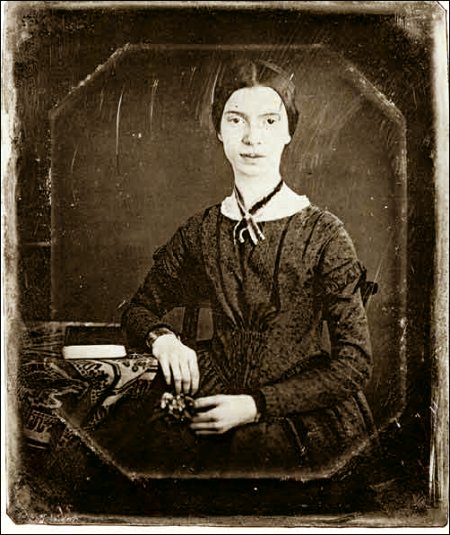
E m i l y D i c k i n s o n
(1830-1886)
There came a day
There came a day – at Summer’s full –
Entirely for me –
I thought that such were for the Saints –
Where Resurrections – be –
The sun – as common – went abroad –
The flowers – accustomed – blew,
As if no soul – that solstice passed –
Which maketh all things – new –
The time was scarce profaned – by speech –
The falling of a word
Was needless – as at Sacrament –
The Wardrobe – of our Lord!
Each was to each – the sealed church –
Permitted to commune – this time –
Lest we too awkward show
At Supper of “the Lamb.”
The hours slid fast – as hours will –
Clutched tight – by greedy hands –
So – faces on two Decks look back –
Bound to opposing lands.
And so, when all the time had leaked,
Without external sound,
Each bound the other’s Crucifix –
We gave no other bond –
Sufficient troth – that we shall rise,
Deposed – at length the Grave –
To that new marriage –
Justified – through Calvaries – of Love!
.jpg)
Emily Dickinson poetry
k e m p i s p o e t r y m a g a z i n e
More in: Archive C-D, Dickinson, Emily
Thank you for reading Fleurs du Mal - magazine for art & literature